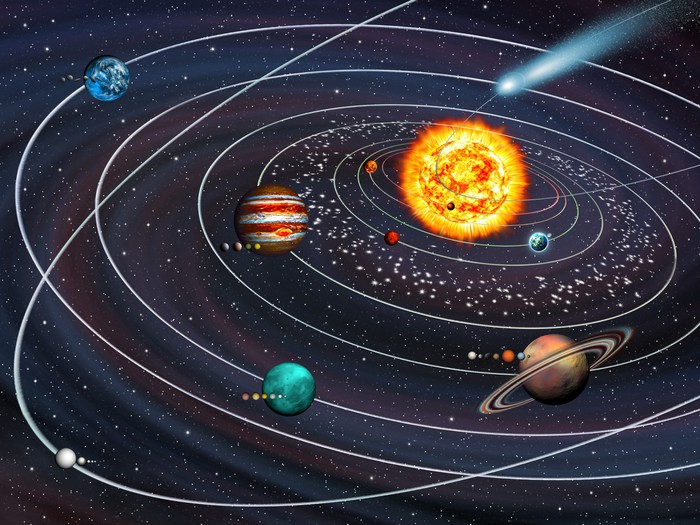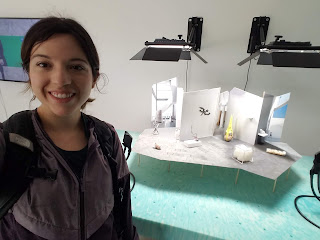Unit 9: Space + Art
I have always found outer space interesting. When I am asked where I would visit if I could go anywhere, I answer, "space". In fact, one of the reasons I decided to study Mechanical Engineering was to further explore the pool of knowledge needed for space endeavors. The unknown beyond earth and the fact that there is only very little that we know as humans calls us to have imagination for what could be out there. It is with this curious mind that I can find space exploration a noble task. Copernicus, for example, was an astronomer and mathematician who first modeled the heliocentric theory in which the sun is at the center of the solar system (Vesna, Lecture 1). Copernicus was unique in his decision to delay publication of this theory, for fear of upsetting others. This type of choice is typically not seen in space exploration efforts. Rather, the common practice now has been to fight for the resulting fame, money, or power. Such incentives I would consider inappropriate, as it taints the artistic perspective, which is to share new ideas.
 |
| Depiction of the Heliocentric Theory |
 |
| Cuban Missile Crisis of the Cold War |
The intrigue of space has not only caught the eyes of scientists and politicians, but has made large appearance in popular culture and art. I am reminded of the following poem by Leonard Nimoy, the actor of Spock in the first Star Trek series: "Rocket ships are exciting but so are roses on a birthday" (Poesie). Such a poem challenges the motivation behind space research and questions if it is truly worth the effort. The earth seems to satisfy our every physical need, so why do we find ourselves leaving it in search for more? Such a way of applying the art of philosophy to technology is yet another reason why I enjoy pursuing engineering.
 |
| Leonard Nimoy as Spock |
Sources
Britannica, The Editors of Encyclopaedia. “Cold War.” Encyclopædia Britannica, Encyclopædia Britannica, Inc., 11 May 2018, www.britannica.com/event/Cold-War.
“Carta Da Parati Sistema Solare: 9 Pianeti Con Lune Sulle Loro Orbite e Comet. • Pixers® - Viviamo per Il Cambiamento.” Pixers, pixers.it/carte-da-parati/sistema-solare-9-pianeti-con-lune-sulle-loro-orbite-e-comet-49018416.
Heffernan, Virginia. “Leonard Nimoy, Spock of 'Star Trek,' Dies at 83.” The New York Times, The New York Times, 27 Feb. 2015, www.nytimes.com/2015/02/27/arts/television/leonard-nimoy-spock-of-star-trek-dies-at-83.html.
History.com Staff. “Cold War History.” History.com, A&E Television Networks, 2009, www.history.com/topics/cold-war/cold-war-history.
“Poesie.” Senato Delle Razze, www.senatodellerazze.org/vulcan/fondazione/vulcanopedia/spock/nimoyappro/scrittore/poesie.html.
Vesna, Victoria. “Space + Art.” Lecture 1. <https://cole2.uconline.edu/courses/888567/pages/unit-9-view?module_item_id=16300833>.
Vesna, Victoria. “Space + Art.” Lecture 2. <https://cole2.uconline.edu/courses/888567/pages/unit-9-view?module_item_id=16300833>.


I too find outer space very interesting, and yet incredibly mind blowing. Thinking about it, there are no answers for its initiation, apart from the Big Bang theory. Which made me think furthermore beyond that. I really enjoy reading your blog for this week's topic. You've made a connection to the topic discussion as well as bring up examples to make it clearer for the readers to understand the topic. Leonard Nimoy's poem caught me well at the end of your blog. It's very cool how you mentioned human's curiosity and always searching for something new.
ReplyDelete